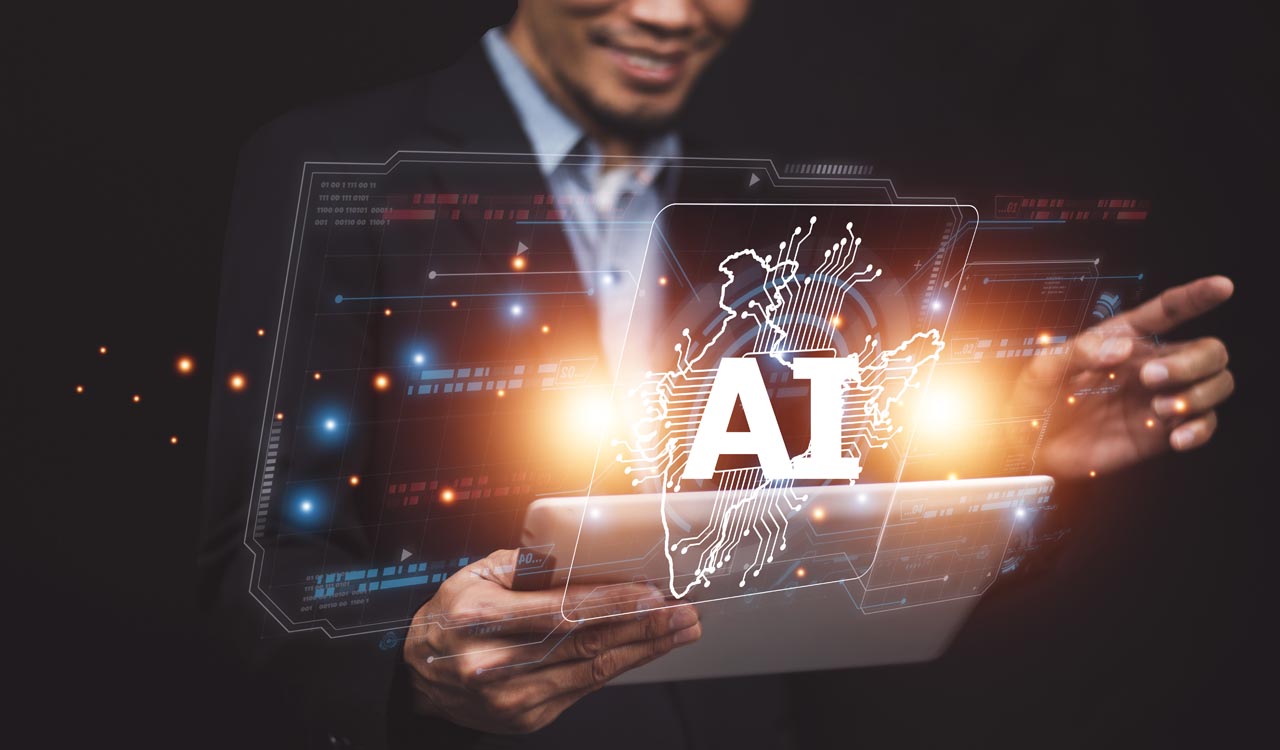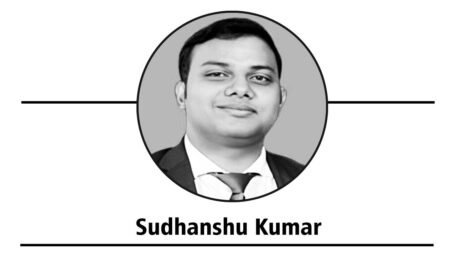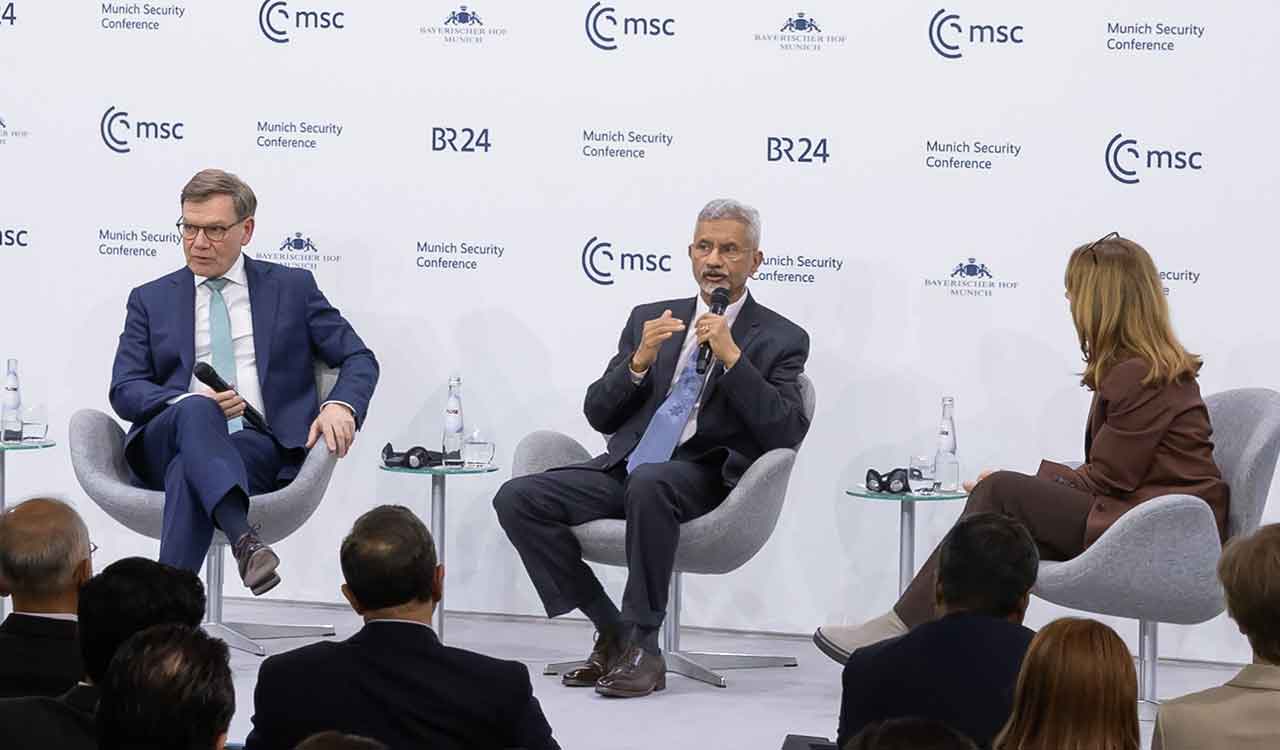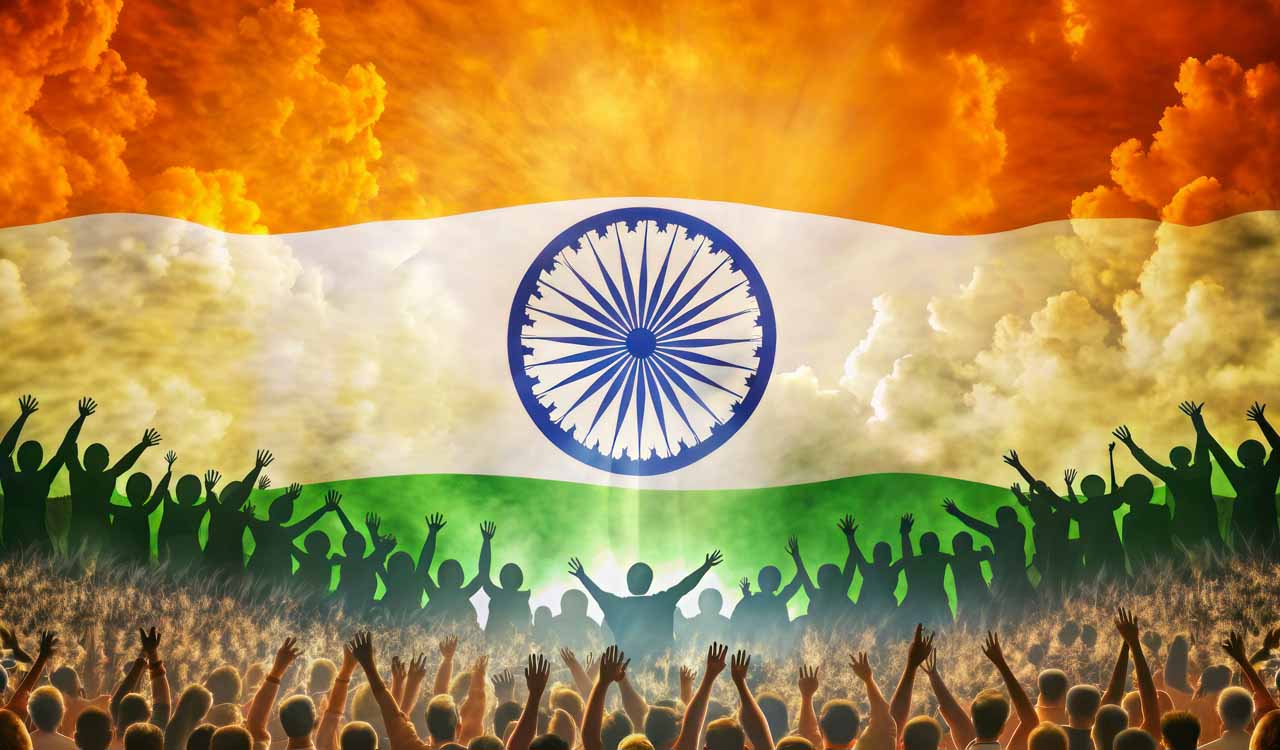Opinion: India’s AI needs an Isro-like push
To revitalise nation-building with advanced technologies, India needs a strong technological force like ISRO, which has made a significant mark in the international Space industry

By Sudhanshu Kumar
If one looks at the biggest tech companies in the world in the top 50 list, one could find many well-known names such as Apple, Microsoft and Google — American companies — as well as Asian tech giants like Tencent, TSMC and Alibaba. In the game of Big Tech competition, two continents are very well represented — North America and Asia. Interestingly, it is difficult to find any European companies in the top 10. In fact, in the top 50 list, shockingly, there are only a few European tech companies. This has not always been the case.
Also Read
- Opinion: Can India lead the AI race?
- Editorial: India’s Race against time on AI
- Meta to expand India operations, hire more for engineering and AI roles
- Editorial: End AI duopoly
- Modi, Pichai discuss India’s digital transformation in France
- Is China’s DeepSeek a threat to US’ ChatGPT?
- PM Narendra Modi meets French President Emmanuel Macron in Paris
- Editorial: AI, the latest threat to democracy
- Editorial: Way forward on AI
- Editorial: Regulating AI
Failure of Europe
Historically, there have been European tech giants like the Finnish company Nokia, which was the largest maker of cell phones from 1998 to 2012. But today Europe’s top tech companies — SAP, Accenture, ASML, Schneider Electric and Dassault — struggle to reach a combined market cap of $700 billion, falling significantly short of their American and Chinese counterparts.
The disparity in market capitalisation is a clear indicator of the difference in the scale and impact of tech companies hailing from these regions. Apart from that, while the US and China are competing intensely in chip manufacturing, 5G technology, electronics, and, of course, artificial intelligence, Europe is nowhere to be seen. Even today in the AI race one could see the US leading with 73% of large language models developed domestically, driven by giants like OpenAI and Nvidia. China’s state-Backed $75 billlion AI industry leverages military-civil fusion and low-cost models like DeepSeek-R1.
In this regard, the recent Paris AI Action Summit hosted by France represented its strategic bid to establish Europe as a ‘third pole’ in the global AI race, countering US and Chinese dominance through a mix of collaborative governance, ethical frameworks and sovereign AI initiatives.
Paris AI Summit
From a larger perspective, the summit aimed to address critical challenges in AI development and promote its use for public interest. It basically focused on issues such as growing inequality between AI controllers and users, concentration of AI progress among a small group of private actors and the missed opportunities to solve key social problems due to fragmented public interest in AI initiatives.
India has already missed the bus of creating its own big tech companies like FAANGs [Facebook (now Meta), Amazon, Apple, Netflix, and Google (now Alphabet)], while China has created its own bigger enterprises such as Tencent, Alibaba and Baidu
The goal is to develop AI common goods in data, open models and citizen participation that can be utilised by all interested states and organisations. Thus, the Paris AI Action Summit presented an ambitious vision for harnessing AI’s potential while addressing critical societal risks. However, its proposals invite significant debate, particularly around feasibility, equity and unintended consequences.
For instance, France announced euro 109 billion in AI investments to position Europe as a ‘third pole’, emphasising open-source models and sovereignty. But France’s investment pledge pales against the $500 billion US private-sector AI investments. In addition, private companies like DeepSeek and OpenAI drive rapid advancements due to competitive pressures and capital access. Hence, public interest initiatives may lag without similar incentives and while Macron’s ‘third pole’ aims to reduce dependency, sceptics warn Balkanised AI ecosystems could stifle interoperability and worsen geopolitical tensions.
Furthermore, the summit talked about promoting “socially responsible AI” through labour observatories and anti-discrimination tools, aiming to balance productivity with worker well-being. But, on the sidelines of the summit, unions highlighted AI-driven job losses in public services. They also opposed metrics like “productivity gains” that often mask workforce reductions as postal workers cited AI tools like “Lucy” (a banking chatbot) are increasing surveillance and workload without improving outcomes, ultimately resulting in a tool of algorithmic exploitation.
It is interesting to note that while the summit emphasised reskilling, no concrete funding mechanisms was discussed to address structural unemployment and skill gaps in sectors like manufacturing.
Similarly, the summit aimed to combat disinformation and cyber risks while promoting ethical AI, but parallel discussions on defence AI highlighted contradictions which can cause military AI escalation because dual-use technologies could fuel autonomous weapons proliferation. This exemplifies that the summit’s vision hinges on unprecedented global cooperation, yet faces scepticism due to power asymmetries, implementation gaps and unintended consequences that may prioritise corporate interests over societal needs.
Therefore, while the summit marked progress in acknowledging AI’s risks, its success depends on translating rhetoric into actionable, equitable frameworks which still exists as a challenge yet to be met. Relying heavily on voluntary safety pledges from corporations and non-binding agreements among nations risks being ineffective against pressing challenges like disinformation, algorithmic bias and cybersecurity threats.
India and its AI needs
Though India’s focus on responsible AI aligns with its democratic values, offering a counterpoint to China’s authoritarian model successes is yet to be seen. India’s Rs 10,300 crore IndiaAI Mission focuses on democratising AI access through Indigenous models (eg BharatGen), GPU infrastructure and datasets tailored to the Global South, but it must address structural challenges at home and push for more substantive outcomes at international forums to solidify its leadership role in the evolving AI landscape.
Eric Schmidt, former Google CEO, during a talk at Stanford University, said India could be a potential swing state in the AI supremacy battle as it has a skilled AI workforce. Thus, the major challenge for the Indian establishment is to stop the flow of its critical resource ie, “skilled AI workforce” to Western countries. Because, what is happening today is a certain form of digital colonialism where skilled human resources of India are being used by other countries to create digital products which are being sold back to India again.
India has already missed the bus of creating its own big tech companies like FAANGs [Facebook (now Meta), Amazon, Apple, Netflix, and Google (now Alphabet)], while China has created its own bigger enterprises such as Tencent, Alibaba and Baidu. India must not miss this AI wave and build its own Big AI companies that may drive the next wave of innovation in the Indian tech ecosystem. AIRO, an artificial intelligence research organisation, can strengthen India’s AI development capabilities, similar to how India created ISRO to streamline space technology development.
India’s active participation in the Paris AI Action Summit positions it as a key player in shaping global AI policies. By championing equitable access and localised solutions while strengthening its domestic capabilities in AI research and development, India has an opportunity to bridge the gap between developed and developing nations.

(The author is a PhD candidate at the School of International Studies, Jawaharlal Nehru University, New Delhi. He is doing research on ‘AI in Russia’ and his research interests lie at the intersection of technology and geopolitics)
Related News
-
Telangana government initiates preparations for first fully digital Census 2027
2 mins ago -
Eshwar Sai bags ‘double’ in Hyderabad Open Tennis Association tournament
10 mins ago -
BJP activists attack Jagtial district chief over cross-voting row
10 mins ago -
Sports briefs: Hyderabad Open Amateur Golf from February 17 to 21
14 mins ago -
Hyderabad Cricket Association likely to hold secretary and treasurer polls in March
22 mins ago -
Krishna Nagar wins two bronze medals at Para Badminton World Championships
23 mins ago -
Congress councillor’s supporters protest against Vivek seeking vice-chairperson post in Mancherial
26 mins ago -
Nissanka’s unbeaten 100 powers Sri Lanka into Super Eights with win over Australia
26 mins ago




